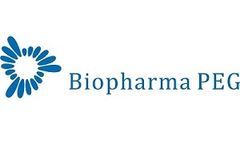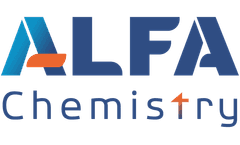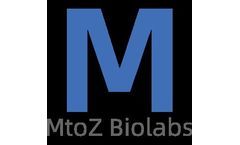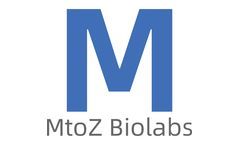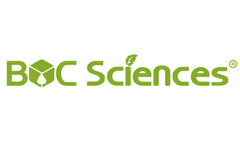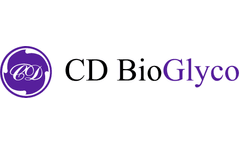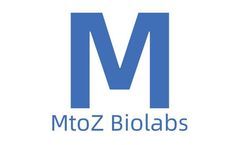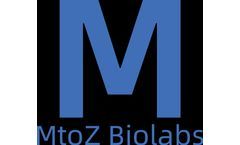Refine by
Monoclonal Antibodie Articles & Analysis
99 articles found
Its application helps identify cellular pathways activated during protease-mediated inflammation and epithelial damage. 4. Antibody Development and Diagnostic Tools Recombinant ELANE serves as an immunogen for the generation of monoclonal antibodies. ...
Among the various production systems available, Chinese Hamster Ovary (CHO) cells have emerged as a gold standard for monoclonal antibody production, and specialized services have been developed to streamline this process. ...
Recombinant protein expression is a cornerstone of modern biopharmaceutical development, providing the means to produce proteins with therapeutic potential, enzymes, and antibodies. Among various expression systems, Chinese Hamster Ovary (CHO) cells have emerged as the preferred choice for many researchers and pharmaceutical companies. ...
Antibody-drug conjugates (ADCs) combine potent small-molecule drugs with monoclonal antibodies for targeted cancer therapy. A major challenge is loading enough drug onto each antibody without compromising solubility or circulation time. Introducing polyethylene glycol (PEG) linkers between the antibody and drug ...
Modern oncology APIs include targeted therapies like kinase inhibitors and monoclonal antibodies that precisely attack cancer cells while minimizing damage to healthy tissues. ...
However, with advancements in biotechnology and biochemistry, the design of antibody-based therapies has undergone a paradigm shift. Techniques such as recombinant DNA technology and hybridoma technology have allowed scientists to create monoclonal antibodies, which are identical copies of a specific antibody that targets a ...
Alfa Cytology has officially released its antibody-drug conjugates(ADCs) development services which demonstrates the dedication to fighting cancer through advanced treatment methods. ...
These innovative therapeutic agents combine the targeting capabilities of antibodies with the cytotoxic effects of radioactive isotopes, providing a powerful strategy for precision cancer treatment. ...
Understanding ADCs At the core of an ADC is its unique structure, which typically consists of three components: a monoclonal antibody, a cytotoxic drug, and a linker that connects the two. The monoclonal antibody is designed to bind specifically to cancer cells, ensuring that the toxic drug is delivered directly to the tumor, ...
This approach involves various strategies, including immune checkpoint inhibitors, therapeutic vaccines, adoptive cell transfer, and monoclonal antibodies. Key Components of Immuno-Oncology Services Personalized Treatment Plans: Immuno-oncology services often begin with an in-depth assessment of the patient’s cancer type and overall health. ...
These receptors play a key role in regulating immune responses, mediating antibody-dependent cellular cytotoxicity (ADCC) reactions, and antibody-dependent cell phagocytosis (ADCP) processes. For many recombinant protein drugs, especially monoclonal antibody drugs, their therapeutic effectiveness is directly related to their ...
In the realm of biotechnology and pharmaceuticals, stable cell lines serve as a foundation for producing high-yield protein therapeutics, monoclonal antibodies, and vaccines. They are routinely employed to study gene function, signal transduction pathways, and drug screening processes. ...
Biotechnology Applications: Beyond disease research, knockin technologies are employed to create cell lines producing therapeutic proteins, monoclonal antibodies, or other bioproducts, enhancing biomanufacturing processes. ...
Antibody drugs are a kind of drugs that treat diseases through artificially synthesized antibodies, achieving therapeutic purposes by specifically binding with target molecules. Common types of antibody drugs include monoclonal antibodies, artificially synthesized antibody fragments, ...
Among the most promising strategies in this endeavor are the use of tumor models for breast cancer and the development of customized antibody-drug conjugates (ADCs). These advancements not only enhance our understanding of the disease but also pave the way for more targeted therapeutic solutions. ...
Immunomodulatory therapies aim to enhance the immune system’s ability to recognize and eliminate viral pathogens. In 2024, the development of monoclonal antibodies and immune checkpoint inhibitors is at the forefront. ...
Glycan microarrays allow researchers to detect these changes and correlate them with disease stages or therapeutic responses, providing valuable tools for diagnostics and personalized medicine. 3. Vaccine Development and Antibody Screening Microarrays are also instrumental in the development of vaccines and in screening for antibodies that target specific ...
Antibody drugs are a type of drugs that treat diseases through artificially synthesized antibodies, which bind specifically to target molecules for therapeutic purposes. Common types of antibody drugs include monoclonal antibodies, artificially synthesized antibody fragments, immunotoxins, and ...
These drugs include cytokines, peptide hormones, recombinant enzymes, monoclonal antibodies, and fusion proteins. Compared to traditional low-molecular-weight synthetic drugs, recombinant protein drugs have advantages such as high specificity, low toxicity, and significant therapeutic effects. ...
This testing is crucial because these host cell proteins (HCPs) may impact the safety, efficacy, and quality of drug products.In the fields of biotechnology and biopharmaceuticals, commonly used drugs such as monoclonal antibodies and other recombinant proteins are often produced in cell culture systems, such as E. coli, CHO (Chinese Hamster Ovary) cells, or ...



